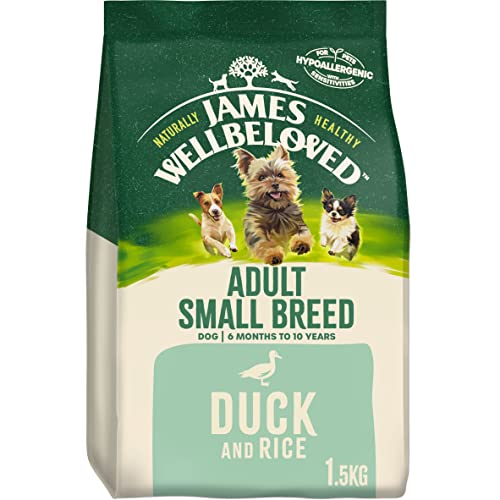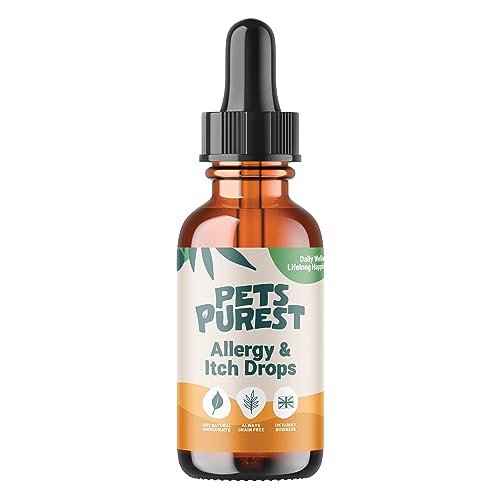For dogs with allergies, the best food includes limited-ingredient diets with novel proteins, such as venison or duck, and grain-free options. These can help minimize allergic reactions and improve overall health.
When searching for the best food for dogs with allergies, it’s crucial to consider their unique dietary needs and potential triggers for allergic reactions. Allergies in dogs can manifest in various ways, including skin irritations, digestive issues, and respiratory problems.
Knowing the specific allergens affecting your dog is essential for selecting the right food. Limited-ingredient diets with novel proteins and grain-free options are often recommended, as they can minimize allergic reactions and improve your dog’s overall well-being. Understanding your dog’s allergies and consulting with a veterinarian can guide you in choosing the most suitable food to address their specific dietary requirements. By prioritizing their health and investing in the right nutrition, you can help your furry friend live a comfortable and happy life.
Buying Guide On Best Food For Dogs With Allergies
Best food for dogs with allergies buying guide: 1. Identifying your dog’s allergies: if your dog shows symptoms of allergies, such as itching, skin irritation, or digestive issues, it’s crucial to determine the specific allergen causing the reaction. Consult your veterinarian for a thorough examination or conduct allergy tests to identify the culprit.
2. Understanding allergenic ingredients: when selecting dog food for allergies, choose products free from common allergenic ingredients like grains (wheat, corn, soy), artificial additives (colors, preservatives), and fillers. Opt for limited ingredient or hypoallergenic formulas, carefully labeled to avoid any misunderstandings.
3. Nutritional value and limited ingredients: check the nutritional value of the dog food. Look for high-quality proteins, easily digestible carbohydrates, and essential fatty acids to support your dog’s overall health. Limited ingredient diets with a shorter list of ingredients help identify potential allergens and simplify the elimination process.
4. Protein sources: ensure that the dog food contains novel protein sources, such as venison, duck, or fish, which are less likely to trigger allergies. Avoid common proteins like chicken or beef, as these may be the root cause of your dog’s allergic reactions.
5. Avoiding allergenic grains: if your dog has grain allergies, choose grain-free or gluten-free dog food options. Instead, look for alternative carbohydrate sources like sweet potatoes, quinoa, or lentils to provide necessary energy without triggering any adverse reactions. 6. Considering food texture: some dogs with allergies also have sensitivities to certain textures.
Observe your dog’s preferences and potential intolerance to wet, dry, or raw food. Experiment with different textures to find the best match for your furry friend’s needs. 7. Reviewing customer feedback and ratings: read customer reviews and ratings to gain insights into other dog owners’ experiences.
Look for feedback specifically related to dogs with allergies to understand how the product has performed in real-life situations. Keep in mind that every dog is unique, so results may vary. 8. Consulting with your veterinarian: before making any final decision, consult your veterinarian regarding the selected dog food.
They can provide invaluable guidance based on your dog’s specific needs and health concerns, ensuring you make the best choice for their overall well-being. 9. Transitioning and monitoring: once you’ve chosen a suitable dog food for allergies, gradually transition your dog’s diet to minimize any digestive upset.
Monitor your dog closely for any improvement in allergy symptoms, and if needed, fine-tune their diet based on further recommendations from your veterinarian. 10. Considerations for severe allergies: for dogs with severe allergies, it may be necessary to explore prescription diets or consult with a veterinary nutritionist to formulate a custom diet plan.
These options can provide targeted solutions for dogs with complex or severe allergic conditions. Remember that every dog’s allergies and dietary needs are unique. Patience, observation, and personalized care are key to finding the best food for dogs with allergies.
Conclusion
Finding the best food for dogs with allergies is crucial for their overall health and well-being. By carefully selecting a hypoallergenic diet that avoids common allergens and incorporates high-quality ingredients, you can help alleviate your furry friend’s allergies and improve their quality of life.
Remember to consult with your vet to identify specific dietary needs and to ensure the chosen food meets all nutritional requirements. Additionally, consider conducting elimination trials to pinpoint the exact allergens that affect your dog. With patience and persistence, you can find the perfect food that not only satisfies their taste buds but also supports their immune system.
Providing your dog with proper nutrition will not only ease their discomfort but also strengthen their immune system, leading to a happier and healthier life for your canine companion. Make the switch today and watch your dog thrive!











Leave a Reply